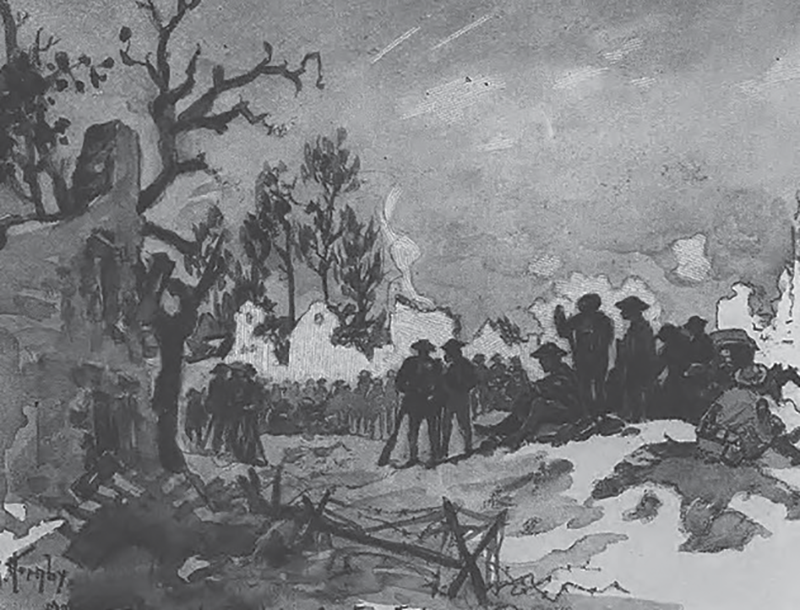I’ve given the Second World War a uniformly bad press, rejecting all attempts to depict it as a sensible proceeding or to mitigate its cruelty and swinishness. I have rubbed readers’ noses in some very noisome materials—corpses, maddened dogs, deserters and looters, pain, Auschwitz, weeping, scandal, cowardice, mistakes and defeats, sadism, hangings, horrible wounds, fear and panic. How did I pick up this dark, ironical, flip view of the war? Why do I enjoy exhibiting it? The answer is that I contracted it in the infantry.
My war is virtually synonymous with my life. I entered the war when I was nineteen, and I have been in it ever since. Melville’s Ishmael says that a whale ship was his Yale College and his Harvard. An infantry division was mine, the 103rd, whose dispirited personnel wore a colorful green-and-yellow cactus on their left shoulders. These hillbillies and Okies and dropouts and used-car salesmen and petty criminals were my teachers and friends.
Our division had never been overseas, and all the time I was putting my rifle platoon through its futile exercises, we were being prepared for the invasion of southern France, which followed the landings in Normandy. In October 1944, we were all conveyed by troop transports to Marseilles. An intimation of what we might be opposing was supplied by the aluminum Vichy coinage. On one side, a fasces and État Français. No more Republic. On the other, Liberté, Égalité, Fraternité replaced by Travail (as in Arbeit Macht Frei), Famille, and Patrie (as in Vaterland). But before we had time to contemplate all this, we were moving rapidly northeast.

On the night of November 11 (nice irony there), we were introduced into the line at St. Dié, in Alsace. We were in “combat.” I find the word embarrassing, carrying as it does false chivalric overtones (as in “single combat”). But synonyms are worse: “fighting” is not accurate, because much of the time you are being shelled, which is not fighting but suffering; “battle” is too high and remote; “in action” is a euphemism suited more to dire telegrams than description. “Combat” will have to do, and my first hours of it I recall daily, even now.
Despite the terror of the shelling, we slept as soundly as babes. At dawn I awoke, and what I saw all around were numerous objects I’d miraculously not tripped over in the dark. These objects were dozens of dead German boys in greenish-gray uniforms, killed a day or two before by the company we were relieving. If darkness had hidden them from us, dawn disclosed them with open eyes and faces like marble, still clutching their rifles and machine pistols in their seventeen-year-old hands, fixed where they had fallen. Michelangelo could have made something beautiful out of these forms, in the Dying Gaul tradition, and I was startled to find that at first, in a way I couldn’t understand, they struck me as beautiful. But after a moment, no feeling but shock and horror. My adolescent illusions, largely intact to that moment, fell away all at once, and I suddenly knew I was not and never would be in a world that was reasonable or just.
The scene was less apocalyptic than shabbily ironic: it sorted so ill with modern popular assumptions about the idea of progress and attendant improvements in public health, social welfare, and social justice. My experience in the war was ironic because my previous innocence had prepared me to encounter in it something like the same reasonableness that governed prewar life. To transform guiltless boys into cold marble after passing them through unbearable fear and humiliation and pain and contempt seemed to do them an interesting injustice. I decided to ponder these things. In 1917, shocked by the Battle of the Somme and recovering from neurasthenia, Wilfred Owen was reading a life of Alfred Tennyson. He wrote his mother: “Tennyson, it seems, was always a great child. So should I have been, but for Beaumont Hamel.” So should I have been, but for St. Dié.
From “My War,” which appeared in the January 1982 issue of Harper’s Magazine.























































































